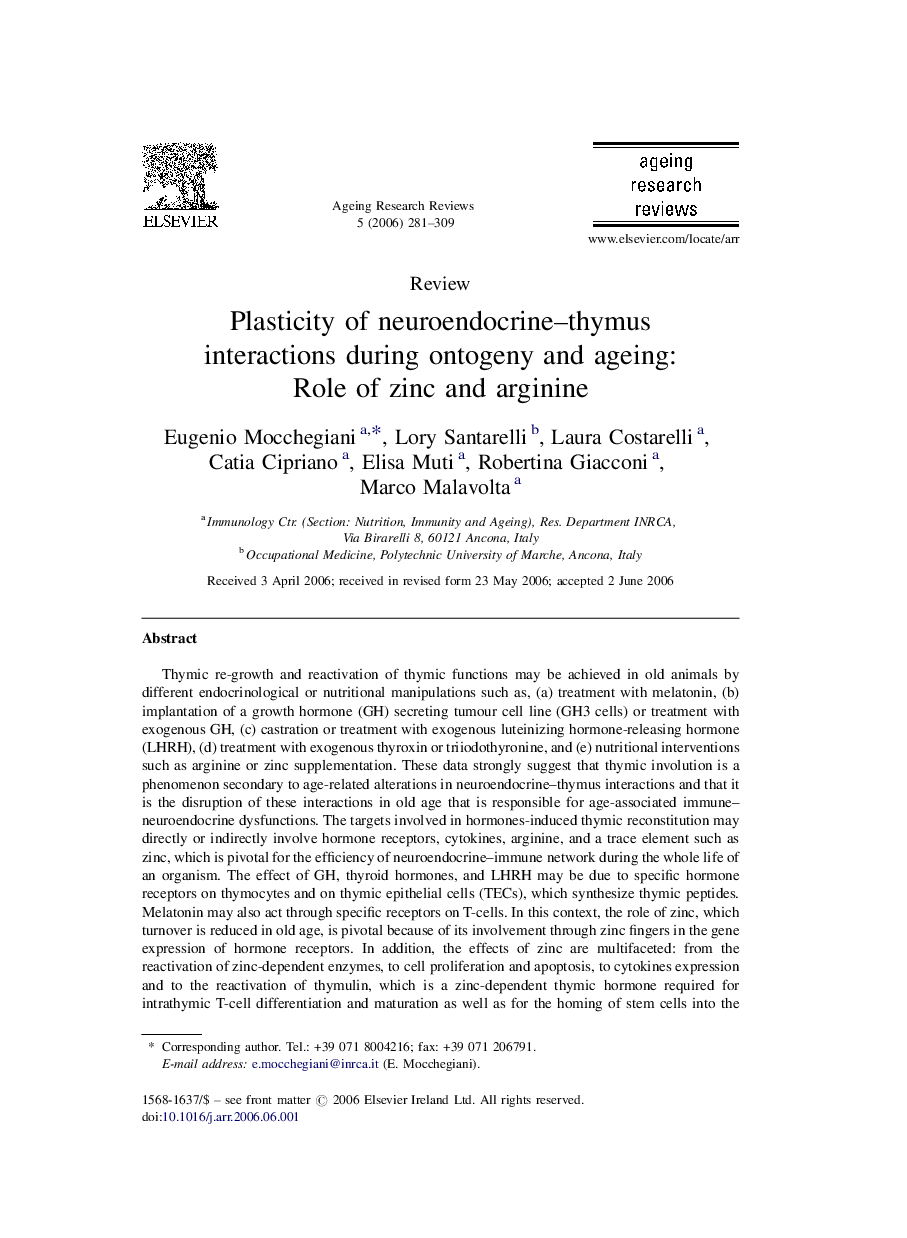| کد مقاله | کد نشریه | سال انتشار | مقاله انگلیسی | نسخه تمام متن |
|---|---|---|---|---|
| 1902524 | 1045755 | 2006 | 29 صفحه PDF | دانلود رایگان |

Thymic re-growth and reactivation of thymic functions may be achieved in old animals by different endocrinological or nutritional manipulations such as, (a) treatment with melatonin, (b) implantation of a growth hormone (GH) secreting tumour cell line (GH3 cells) or treatment with exogenous GH, (c) castration or treatment with exogenous luteinizing hormone-releasing hormone (LHRH), (d) treatment with exogenous thyroxin or triiodothyronine, and (e) nutritional interventions such as arginine or zinc supplementation. These data strongly suggest that thymic involution is a phenomenon secondary to age-related alterations in neuroendocrine–thymus interactions and that it is the disruption of these interactions in old age that is responsible for age-associated immune–neuroendocrine dysfunctions. The targets involved in hormones-induced thymic reconstitution may directly or indirectly involve hormone receptors, cytokines, arginine, and a trace element such as zinc, which is pivotal for the efficiency of neuroendocrine–immune network during the whole life of an organism. The effect of GH, thyroid hormones, and LHRH may be due to specific hormone receptors on thymocytes and on thymic epithelial cells (TECs), which synthesize thymic peptides. Melatonin may also act through specific receptors on T-cells. In this context, the role of zinc, which turnover is reduced in old age, is pivotal because of its involvement through zinc fingers in the gene expression of hormone receptors. In addition, the effects of zinc are multifaceted: from the reactivation of zinc-dependent enzymes, to cell proliferation and apoptosis, to cytokines expression and to the reactivation of thymulin, which is a zinc-dependent thymic hormone required for intrathymic T-cell differentiation and maturation as well as for the homing of stem cells into the thymus. Zinc is also required for arginine action, via NO pathway. The role of zinc is therefore crucial in neuroendocrine–thymus interactions. According to data in animals and humans, the above reported endocrinological manipulations (GH, thyroid hormones, and melatonin) or arginine treatment may also act via zinc pool in restoring thymic activity in ageing allowing improvements on peripheral immune efficiency.
Journal: Ageing Research Reviews - Volume 5, Issue 3, August 2006, Pages 281–309